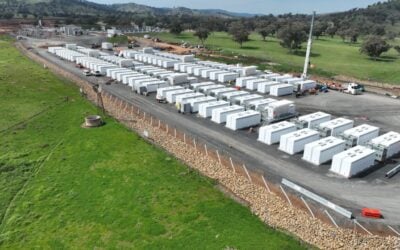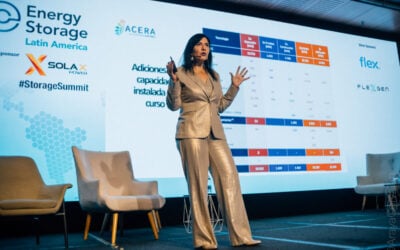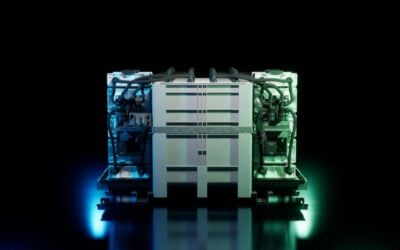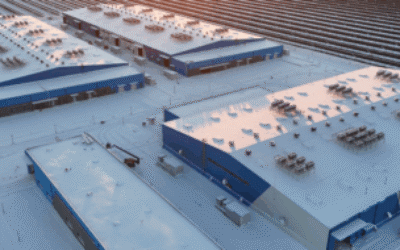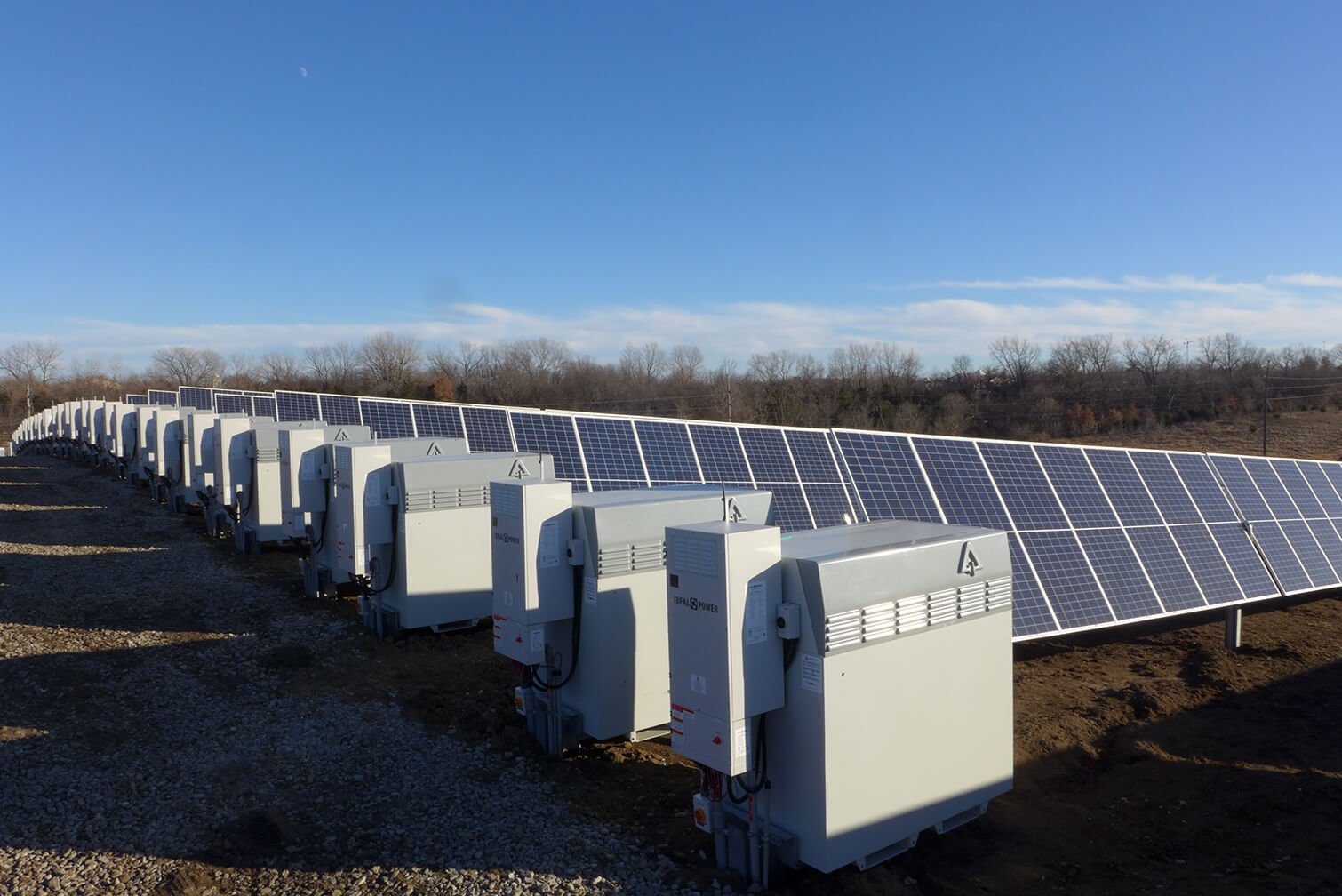
Invinity Energy Systems, supplier of a grid-scale vanadium flow battery being installed at a site in the UK will rent the battery’s electrolyte out to the investor developing the project, thereby helping lower the upfront cost of getting the system deployed.
Before Invinity Energy Systems was formed by a merger last year between US-headquartered flow battery provider Avalon Battery and UK counterpart redT, Avalon started up the business model of renting out battery electrolytes to customers.
Early last year, Avalon supplied a battery system to a microgrid project for solar installation company Sandbar Solar in California which allowed Sandbar’s HQ buildings to run on solar energy 24/7 and rented the electrolyte to Sandbar.
At the time, Avalon said that it expected the vanadium used to retain 100% of its value and be fully recyclable even after years of heavy duty use, while company president Matt Harper – now also Invinity’s president – said that electrolytes represent around 35% of a flow battery system’s upfront cost.
Try Premium for just $1
- Full premium access for the first month at only $1
- Converts to an annual rate after 30 days unless cancelled
- Cancel anytime during the trial period
Premium Benefits
- Expert industry analysis and interviews
- Digital access to PV Tech Power journal
- Exclusive event discounts
Or get the full Premium subscription right away
Or continue reading this article for free
Now, Invinity has gone further, together with minerals company and vanadium producer Bushveld Minerals forming the special purpose vehicle (SPV) Vanadium Electrolyte Rental Limited (VERL). Customers can rent the electrolyte over the lifetime of a project, offsetting their initial capital outlay.
The first customer is Pivot Power, a developer and investor of energy storage and other advanced energy projects, majority-owned by EDF Renewables. Pivot is working on the Energy Superhub Oxford – an ambitious low-carbon smart energy system in England which will integrate diverse distributed energy technologies including multiple chargers for electric vehicles (EV), heat pumps and a ‘hybrid’ battery.
The hybrid battery system will perform frequency response tasks by participating in fast frequency response tenders: combining 50MW of lithium-ion battery energy storage supplied by Wartsila with Invinity’s 2MW / 5MWh vanadium flow battery. Invinity forebearer redT partnered with Bushveld Minerals on electrolyte supply for the project in March as the project got approval to go ahead.
Controlled as one asset by an energy management system (EMS) that will juggle the optimum charge / discharge schedule, the flow battery will do the ‘heavy lifting’, preventing degradation wear and tear on the lithium-ion. Pivot Power will rent the electrolyte in the flow battery for 10 years from VERL.
Read the blog ‘Making a digital twin of Oxford’s low-carbon Energy Superhub, hybrid battery and all’.

